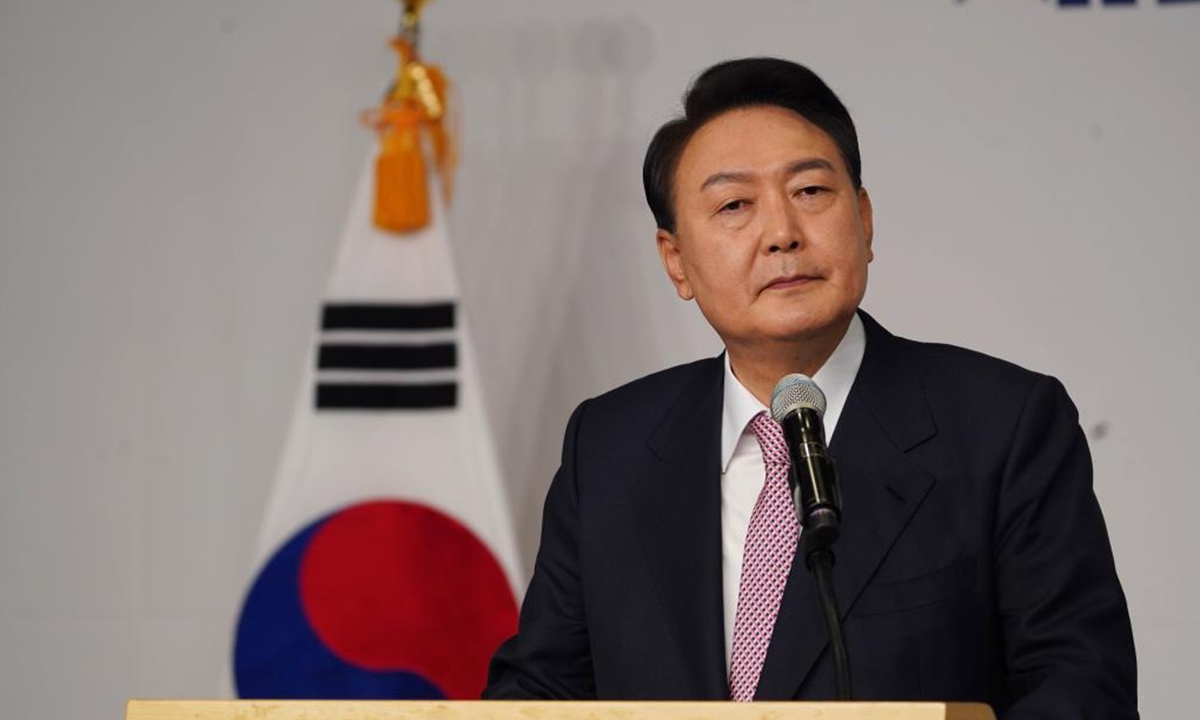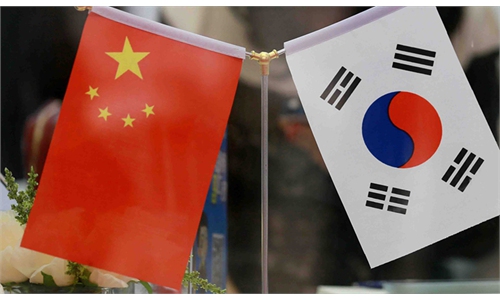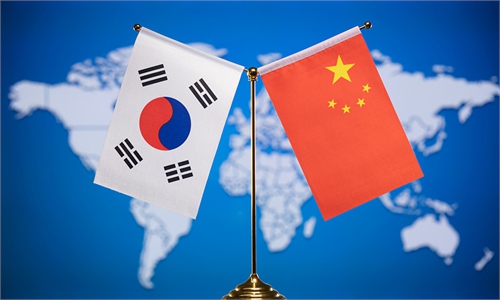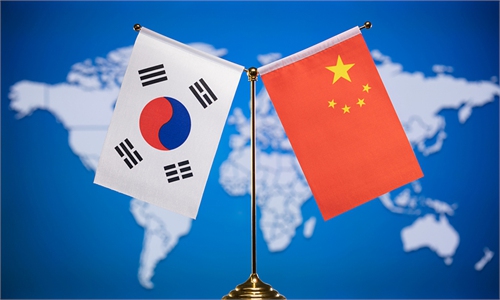
Yoon Suk-yeol Photo: Xinhua
South Korean President Yoon Suk-yeol on Sunday kicked off a three-nation trip that will include his first address to the UN General Assembly and a summit with US President Joe Biden, according to the Yonhap News Agency.
Since taking office, the Yoon administration has actively carried out diplomatic engagement with the US. Given the South Korea-US security alliance, it is not surprising that Seoul is seeking to strengthen its ties with Washington. But it needs to be pointed out that how the South Korean government ensured both its security and economic interests under a value-oriented diplomatic positioning remain an unavoidable challenge.
Yonhap said that Biden and Yoon are expected to discuss South Korea's concerns over the US' Inflation Reduction Act (IRA) during their upcoming meeting. The newly passed IRA has attracted a lot of attention in South Korea, because one of the important aspects of the new law is to provide significant subsidies for electric vehicles made in the US, raising concerns over a potential significant trade barrier for cars made in South Korea.
While it is unclear whether the two countries will address the concerns through exchanges of views, the latest economic friction is actually a manifestation of the challenges South Korea is facing in safeguarding its own economic interests, while pursuing strong ties with the US.
Although the Yoon administration has appeared to align the country more closely with the US over recent months, on an economic level, what the US has been engaged in indicates that Washington may only care about its own interests, with no regard for South Korea's interests. For instance, the Biden administration has pressured South Korea to take sides and join the so-called Chip 4 alliance, which lays bare the US' attempt to use its technological advantages to contain China's high-tech industrial chain by fragmenting global supply chains.
Anyone with the basic knowledge of South Korea's semiconductor sector would know the US proposal of a chip alliance has created a dilemma for the Yoon administration. The US possesses high-end chip technology, while China is South Korea's largest export market, which reportedly accounts for 60 percent of South Korea's overall chip exports. In this sense, what the US has been doing such as forming small circles and establishing supply chains that exclude China could hurt South Korea's economic interests.
For the Yoon administration, maintaining the overall stability of China-South Korea economic and trade relations remains vital to the South Korean economy. In 2021, China was the biggest trading partner to South Korea, with China trade accounting for 24 percent of its total trade and 80 percent of South Korea's trade surplus coming from China, according to media reports.
Meanwhile, there is also no denying that South Korea still holds great expectations for trade with the US. In the first half of this year, South Korea's trade surplus with the US reached $21.67 billion, surging 86.9 percent year-on-year, according to Yonhap.
Therefore, the biggest challenge facing the Yoon administration is to chart a path that can ensure its economic ties with both the US and China. Frankly speaking, South Korea doesn't have much choice as to how to deal with the challenge. To avoid becoming a pawn in the US' geopolitical game, it is essential for South Korea to further strengthen its coordination with China, for example, in terms of promoting cooperation under the RCEP framework and facilitating the progress of a bilateral free trade deal with China and the China-Japan-South Korea free trade deal.
The economic development in East Asia can never be dictated by the US. South Korea must understand this, or it will lose the opportunity to grow stronger.
China and South Korea are both beneficiaries and builders of the global free trade system, and both countries are possessing the key links of the international supply chain. Their joint safeguarding of stability of supply chains and the free trade system is of great significance to the development and prosperity of the two countries, the region, and the world.



